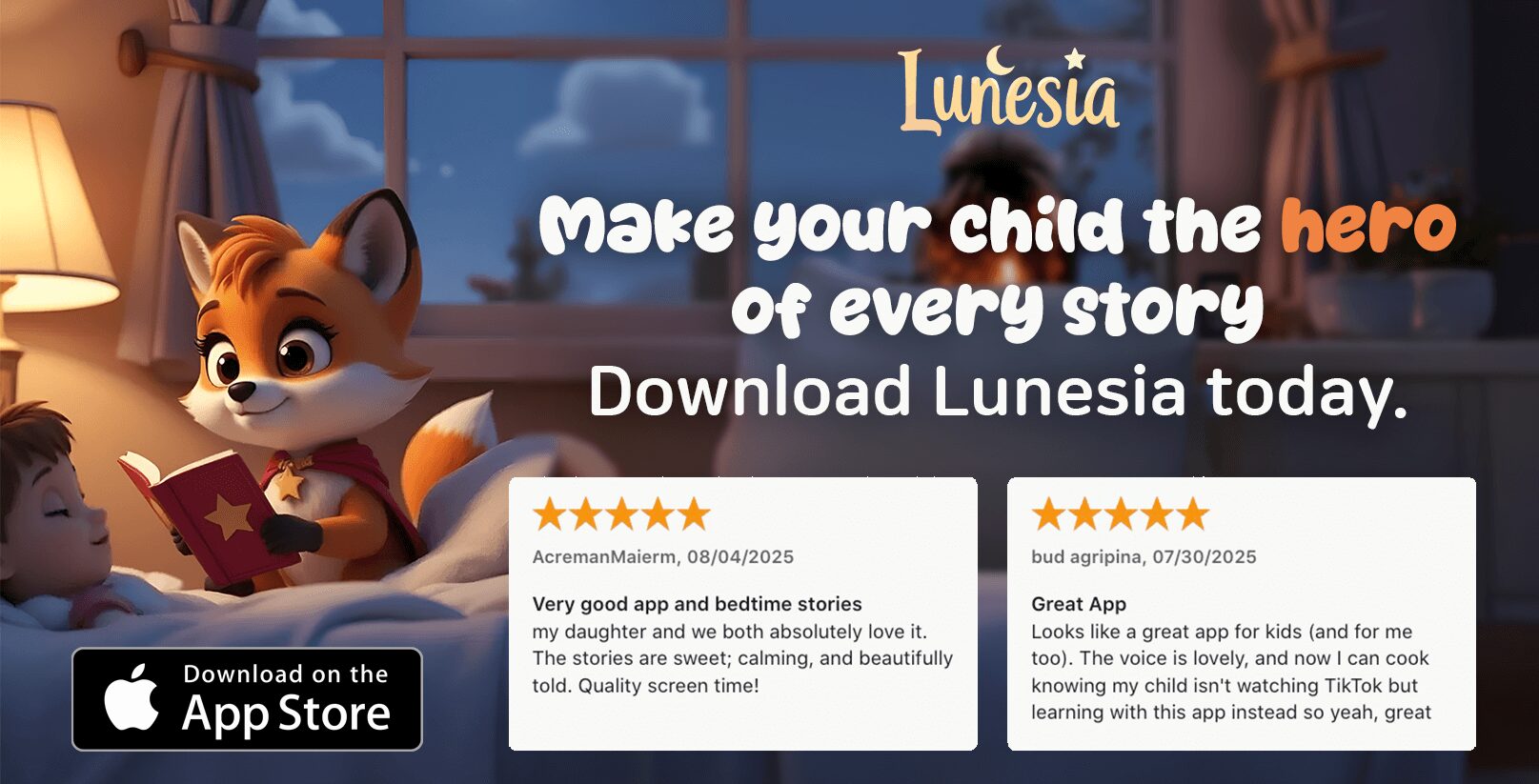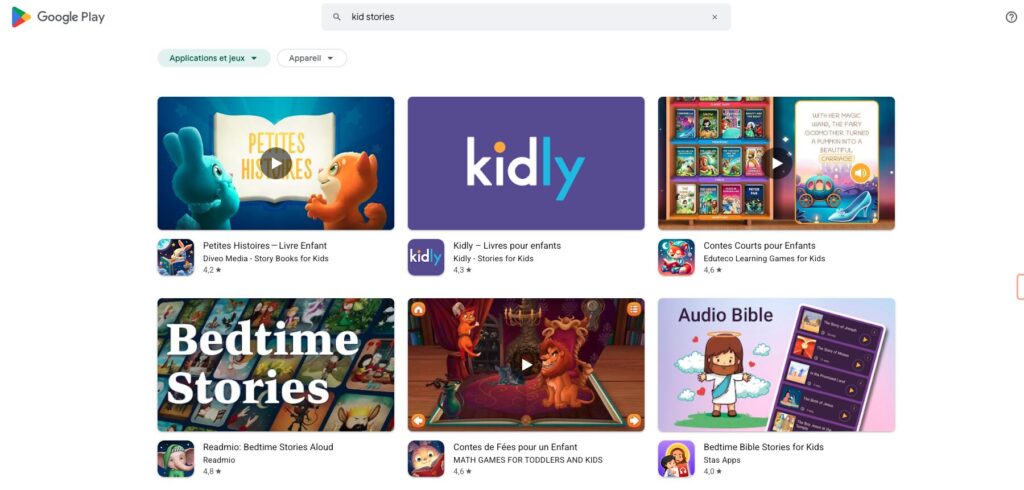Can the way children play today influence their ability to adapt and succeed tomorrow? As a parent, you want your child to be resilient and capable of handling life’s challenges. Executive functioning skills, such as organization, time management, and flexible thinking, are crucial for achieving success in school and beyond.
Research shows that interactive games can significantly enhance these skills by engaging children in real-world problem-solving. But what if you could boost your child’s ability to switch between different concepts, adapt to changing rules, and approach problems from multiple angles? By incorporating specific types of play into their daily routines, you can foster more adaptable, resilient thinking in your child.
Let’s explore how to harness the power of games and play to develop cognitive flexibility and essential life skills in your child.
Understanding Cognitive Flexibility in Child Development
Cognitive flexibility is a crucial aspect of child development that enables kids to adapt and thrive in an ever-changing world. As we explore this concept further, you’ll gain insights into how it impacts your child’s life.
What Is Cognitive Flexibility?
Cognitive flexibility refers to the ability to switch between different mental tasks and adapt to new information. It’s a key component of executive functioning skills, which are essential for planning, organizing, and executing tasks effectively. In simple terms, cognitive flexibility is about being able to adjust plans when necessary and consider multiple perspectives when solving problems.
Why Cognitive Flexibility Matters for Academic Success
Research has shown that cognitive flexibility is a stronger predictor of academic success than IQ alone. This is because it enables children to apply different strategies to math problems, understand different perspectives in literature, and adjust to various teaching styles. By developing cognitive flexibility, your child will be better equipped to handle the challenges of school and beyond. For more on how interactive tools can enhance creativity and cognitive skills, visit storytelling and creativity resources.
As a parent, supporting your child’s development of cognitive flexibility can make a significant difference in their academic journey. By understanding its importance and incorporating activities that promote this skill, you’re setting your child up for success.
The Science Behind Interactive Play and Brain Development
As we explore the connection between play and brain development, we uncover the key to enhancing cognitive flexibility in children. Interactive play is more than just a fun activity; it’s a vital component in shaping young minds and laying the foundation for advanced cognitive skills.
How Play Creates Neural Pathways
When children engage in interactive games like Operation Pizza, they’re not just having fun; they’re practicing executive functioning skills such as time management, organization, and problem-solving. This real-time decision-making strengthens neural pathways in the brain, enhancing cognitive flexibility and adaptability.
Our brains are wired to eliminate unused connections, a process that can weaken cognitive abilities if not regularly exercised. By engaging in play, children create and reinforce neural connections, ensuring these pathways remain robust.
The Role of Play in Executive Functioning
Executive function encompasses a range of high-level cognitive processes, including planning, working memory, and flexible thinking. Games that require rule-switching and adaptation are particularly effective at stimulating the prefrontal cortex, the region responsible for executive functioning.
| Cognitive Skill | Benefit of Interactive Play |
|---|---|
| Time Management | Enhanced through timed games and activities |
| Problem-Solving | Developed through puzzles and strategic games |
| Cognitive Flexibility | Improved through games requiring adaptation |
By incorporating games and interactive play into daily routines, parents can help their children develop stronger functioning skills and cognitive skills, setting them up for success in both academics and life.
Interactive Play and Cognitive Flexibility: The Perfect Partnership
Interactive play, especially through games, is a powerful tool for enhancing cognitive flexibility in children. By engaging in interactive play, kids can develop the ability to adapt, switch between different rules, and think strategically.

Why Games Are Effective Learning Tools
Games are not just entertaining; they’re also effective learning tools. They provide an engaging way to practice executive functioning skills in real-time, helping children make quick decisions under pressure, adjust strategies as challenges arise, and plan ahead. The game environment allows kids to practice these skills without the anxiety associated with formal learning environments.
Benefits Beyond Cognitive Flexibility
Engaging in games and interactive play offers numerous benefits beyond enhancing cognitive flexibility. It improves executive function, promotes strategic thinking, and fosters functioning skills that are essential for academic success. Moreover, it encourages collaboration and teamwork, helping children work together towards common goals.
| Benefits | Description |
|---|---|
| Cognitive Flexibility | Adapting to new information and changing circumstances |
| Executive Functioning | Planning, decision-making, and problem-solving |
| Strategic Thinking | Developing plans and adjusting strategies as needed |
Essential Components of Cognitive Flexibility Games
To foster cognitive flexibility, it’s essential to understand what makes certain games more effective than others. Games that aim to improve skills like memory, flexible thinking, and self-control can provide a solid foundation for young adults and teens as they navigate complex educational and social landscapes.
Problem-Solving Elements
Games that incorporate problem-solving elements are particularly effective. These elements challenge children to think critically and come up with creative solutions. For instance, puzzles and brain teasers encourage kids to adapt their thinking patterns, enhancing their cognitive flexibility.
Adaptability Requirements
Games with variable rules or conditions require children to be adaptable, a crucial aspect of cognitive flexibility. Adaptability is fostered when children are encouraged to adjust their strategies mid-game, promoting flexible thinking.
Strategic Thinking Opportunities
Opportunities for strategic thinking are also vital. Games that require planning and foresight help children develop their executive function skills, which are closely linked to cognitive flexibility. Examples include strategy board games and card games that demand thoughtful decision-making.
| Game Type | Cognitive Benefit | Age Group |
|---|---|---|
| Puzzles and Brain Teasers | Problem-Solving, Critical Thinking | 7-12 years |
| Strategy Board Games | Strategic Thinking, Executive Function | 7-12 years |
| Card Games | Working Memory, Adaptability | 7-12 years |
By incorporating these elements, games can provide a comprehensive cognitive workout, enhancing cognitive flexibility and related skills.
Top Interactive Games for Preschoolers (3-6 years)
When it comes to boosting cognitive flexibility in preschoolers, the right games can be incredibly effective. At this age, children are beginning to develop their executive function skills, and interactive play can significantly enhance this process.
Simon Says and Similar Direction Games
Simon Says is a classic game that promotes impulse control and attention. It’s an excellent example of a game that requires children to listen carefully to instructions and switch between different actions based on verbal cues.
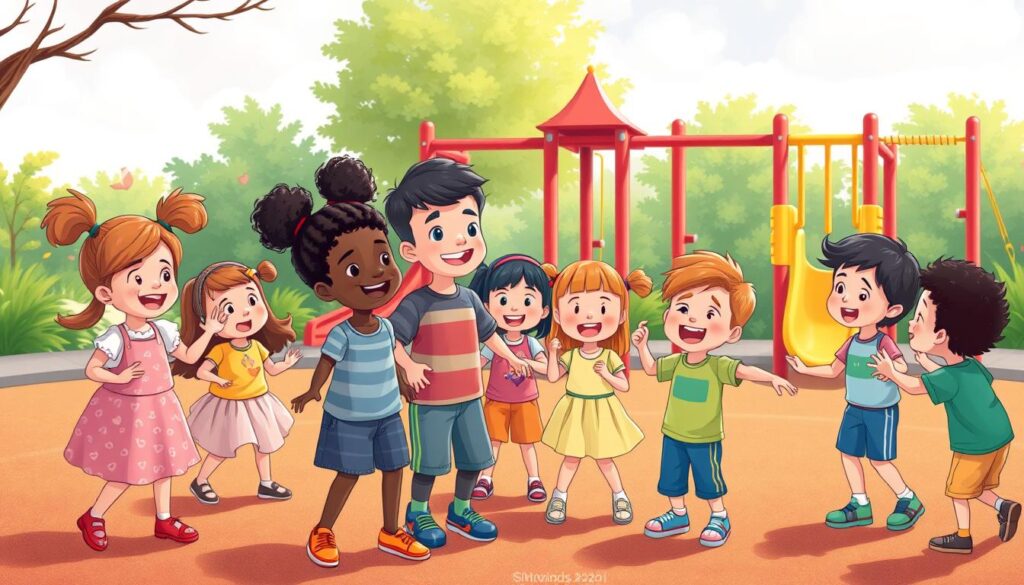
Simple Board Games for Young Children
Simple board games with clear rules introduce young children to structured guidelines while allowing for strategic choices. Games like Hopscotch improve planning and sequencing skills, while others like Feed the Woozle develop fine motor skills and counting abilities.

Hands-On Activities That Promote Flexible Thinking
Hands-on sensory activities encourage preschoolers to use materials in multiple ways, promoting creative problem-solving and flexible thinking. Cooperative games like Snug as a Bug in a Rug and Outfoxed! help young children practice perspective-taking and adjusting their behavior based on others’ actions.
For more stories and activities that enhance self-control and cognitive flexibility, visit https://lunesia.app/stories-about-self-control/.
Effective Games for School-Age Children (7-12 years)
Engaging school-age children in strategic games is an effective way to boost their cognitive flexibility and prepare them for future challenges. These games not only enhance problem-solving skills but also promote social interaction and executive functioning.
Strategy Board Games
Strategy board games like Zingo and Dragonwood are excellent for developing cognitive flexibility in school-age children. These games require players to think ahead, anticipate outcomes, and adjust their strategies accordingly.

Card Games That Enhance Working Memory
Card games such as Rory’s Story Cubes improve working memory by challenging children to remember and sequence events. These games also foster creativity and critical thinking.
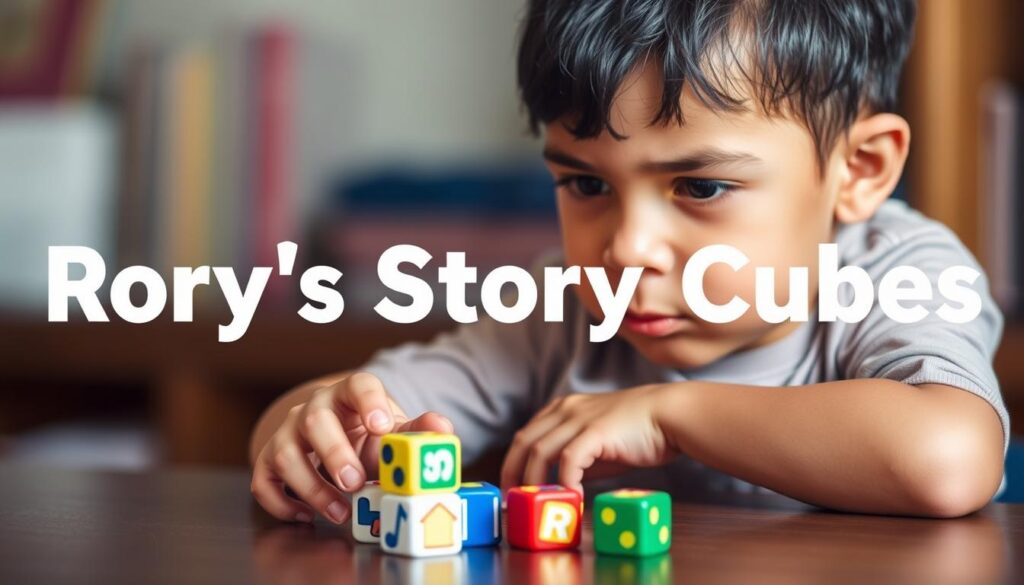
Cooperative Games for Cognitive and Social Development
Cooperative games like Forbidden Island and Magic Maze promote teamwork, communication, and mutual problem-solving. These games enhance cognitive flexibility while teaching valuable social skills.
Digital Games and Apps That Boost Cognitive Flexibility
As we navigate the vast world of digital entertainment, it’s crucial to identify games and apps that genuinely improve cognitive flexibility in kids. The right digital tools can significantly enhance a child’s ability to adapt and think flexibly.
Explore more apps for kids that foster creativity and cognitive development.
Brain Training Apps for Kids
Brain training apps designed by cognitive scientists can target and strengthen executive functioning skills in children. For instance, CogniFit’s “Drive me crazy” is a brain game that trains shifting and auditory perception, helping to create new synapses and improve cognitive functions.

Video Games That Require Strategic Thinking
Certain video games require strategic thinking, planning, and adaptation, all of which contribute to enhanced cognitive flexibility. These games challenge children to think on their feet and adjust their strategies as needed.
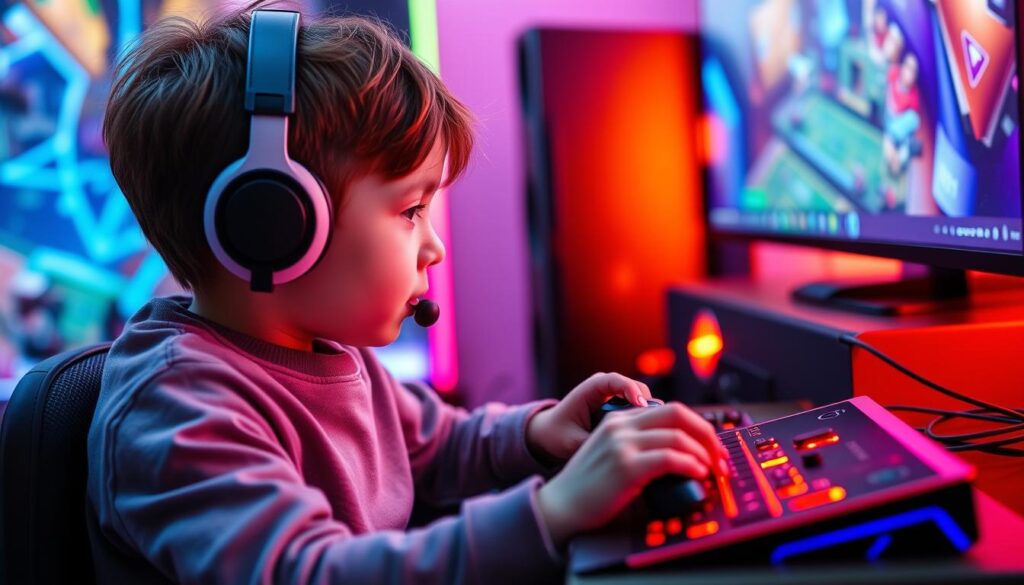
Balancing Screen Time with Cognitive Benefits
While digital games can offer cognitive benefits, it’s essential to balance screen time with other activities. Parents should establish guidelines to ensure that screen time is used effectively to enhance cognitive flexibility without overdoing it.
Implementing Interactive Play in Daily Routines
Integrating interactive play into your family’s daily routines is a simple yet effective way to enhance your child’s cognitive skills. By incorporating games and playful activities into your daily life, you can help your child develop essential skills like cognitive flexibility, problem-solving, and emotional control.
Creating a Game-Friendly Home Environment
To encourage interactive play, you need a game-friendly environment that fosters spontaneity and creativity. Designate a specific area for games and keep them organized with storage solutions and rotation systems. This will keep the space fresh and exciting, inviting your child to engage in play.
Incorporating Games into Learning Activities
You can turn regular homework or chores into opportunities to practice flexible thinking by incorporating game elements. For instance, you can create a timed challenge or a reward system to make the task more engaging. This approach not only makes learning more enjoyable but also helps develop executive functioning skills.
Family Game Night: Strategies for Success
Establishing a successful family game night tradition requires choosing games that appeal to all family members. Make it a regular event, like every Wednesday, to play games that require memory or quick decision-making. This strengthens family bonds and continuously engages skills like emotional control and flexibility in thinking. For more ideas on integrating play into daily routines, check out this insightful article on LinkedIn.

Conclusion: Nurturing Flexible Thinkers Through Play
By embracing the power of play, we can help children develop the executive functioning skills necessary for success in all areas of life. Through interactive games, children can build cognitive flexibility, a crucial ability that benefits not just academic performance but also social relationships and future career adaptability.
As we’ve explored, interactive play is a powerful tool for developing thinking skills. By engaging in games that challenge them, children can enhance their problem-solving abilities and learn to adapt to new situations. This, in turn, fosters flexibility in their thinking, allowing them to navigate complex challenges with ease.
The benefits of strong executive function extend far beyond the classroom. Children who develop these skills through game-based learning are better equipped to manage responsibilities, stay focused, and overcome obstacles. As they grow, they’ll be able to apply these abilities to a wide range of situations, from personal relationships to professional endeavors.
By incorporating play into daily routines and viewing it as an essential component of learning, we can give children the gift of cognitive flexibility. As they develop this critical ability, they’ll be better prepared to thrive in an increasingly complex and rapidly changing world.
FAQ
How can I help my child develop cognitive skills through games?
You can help your child develop cognitive skills by incorporating games that challenge problem-solving, working memory, and strategic thinking into their daily routine. Examples include strategy board games and card games that require adaptability and planning.
What are some effective ways to improve executive functioning skills in kids?
Improving executive functioning skills can be achieved through games and activities that promote task initiation, time management, and organization. For example, setting a timer for a task or using a planner can help kids stay on track and develop these essential skills.
Are digital games beneficial for kids’ brain development?
Yes, certain digital games and apps can be beneficial for kids’ brain development, particularly those that challenge working memory, cognitive flexibility, and strategic thinking. However, it’s essential to balance screen time with other activities and ensure the games are age-appropriate.
How can I make game night a success with my family?
To make game night a success, choose games that are enjoyable for everyone, set aside distractions like TV and phones, and establish a regular schedule. This can help create a fun and engaging way to spend quality time together while promoting cognitive development and social skills.
Can games really help my child develop flexible thinking?
Absolutely! Games that require adaptability, problem-solving, and strategic thinking can help kids develop flexible thinking. By incorporating these types of games into their routine, you can help your child become a more adaptable and resilient thinker.

